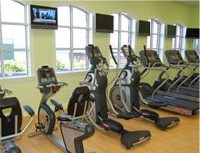Fitness trackers are increasing in popularity, and as a result, they’re also increasing in the variety of styles and the various functions they offer. Faced with the large choice of manufacturers, including FitBit, Epson, Mira, and Garmin, it can be difficult to narrow down the style that is right for you. Fitness trackers are a smart choice for anyone living in a retirement community in FL, like Lake Ashton, where you can take advantage of the community’s many amenities. Here are some of the things to look for when choosing a tracker.

Fitness trackers can range in price from $50 to $500, though most fall in the $50 to $250 range. The more expensive models are geared toward people training for marathons, triathlons and similar intense activities. Most people are more interested in slightly simpler trackers that measure their distance traveled (steps), their caloric intake, their sleep cycle, and their heart rate. Whatever level you choose, always look for one that is easy to use and understand on a daily basis.
While most trackers will tell you how many calories you’ve burned through your activity, some can even tell you how many calories you’ve consumed, down to the percentages of carbs, fat and protein. This can be particularly useful if you’re trying to lose a significant amount of weight or need to track the levels of certain types of food elements.
Many fitness trackers have a heart-rate monitor that is useful when you’re trying to track your heart rate during exercise. However, if this is a factor you are particularly focused on, you will find that monitors that strap to the chest give more precise information than the typical style that is worn on the wrist.
In terms of choosing the tracking features, think about how you want to use the tracker in your daily life in your retirement community in FL. Because many people enjoy water activities in Florida, it is important to make sure you choose a tracker that can stand up to extended time in the water, whether you’re swimming, doing water aerobics, or any other activity where it’s going to get wet. Many people keep their tracker on constantly, so it is also important to have a tracker that can stand up to a shower or you will need to remember to take it off.
The more bells and whistles you choose for your tracker, the more likely you’ll have to recharge it frequently. Some trackers can stay charged for up to a month, while others need to be recharged daily. It is something to consider when purchasing a tracker, as well as the ease of use of any related apps or websites. Fortunately, with so many trackers now available, it shouldn’t be too hard to find one that tracks the details most important to you and your health.

